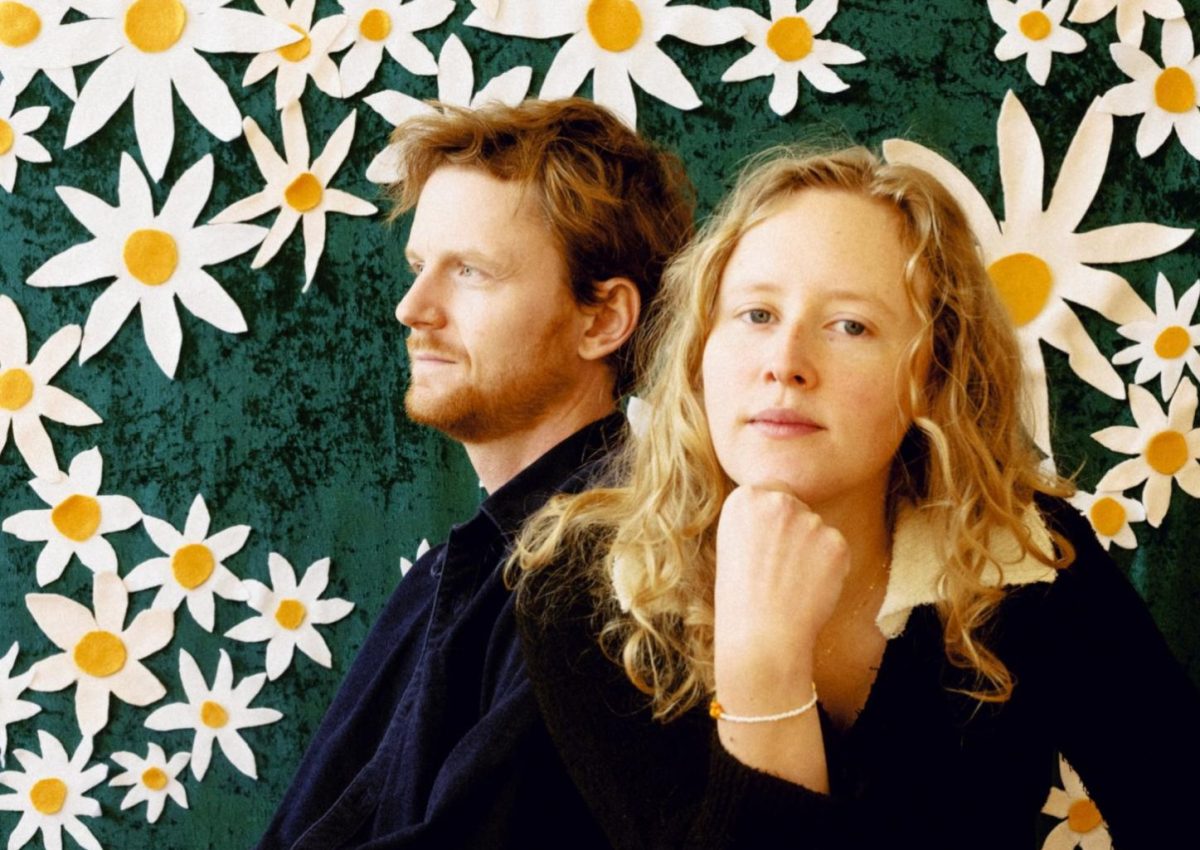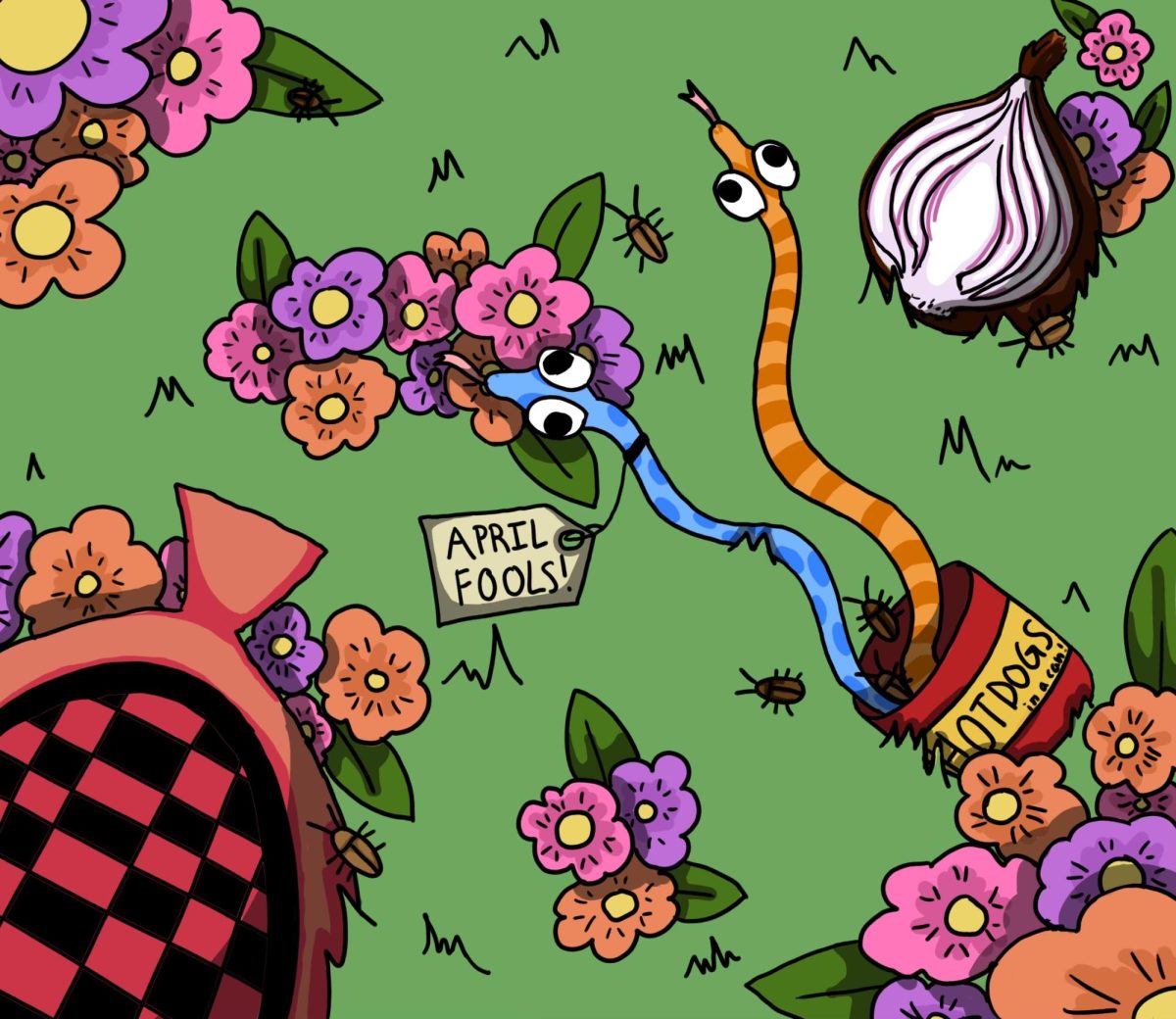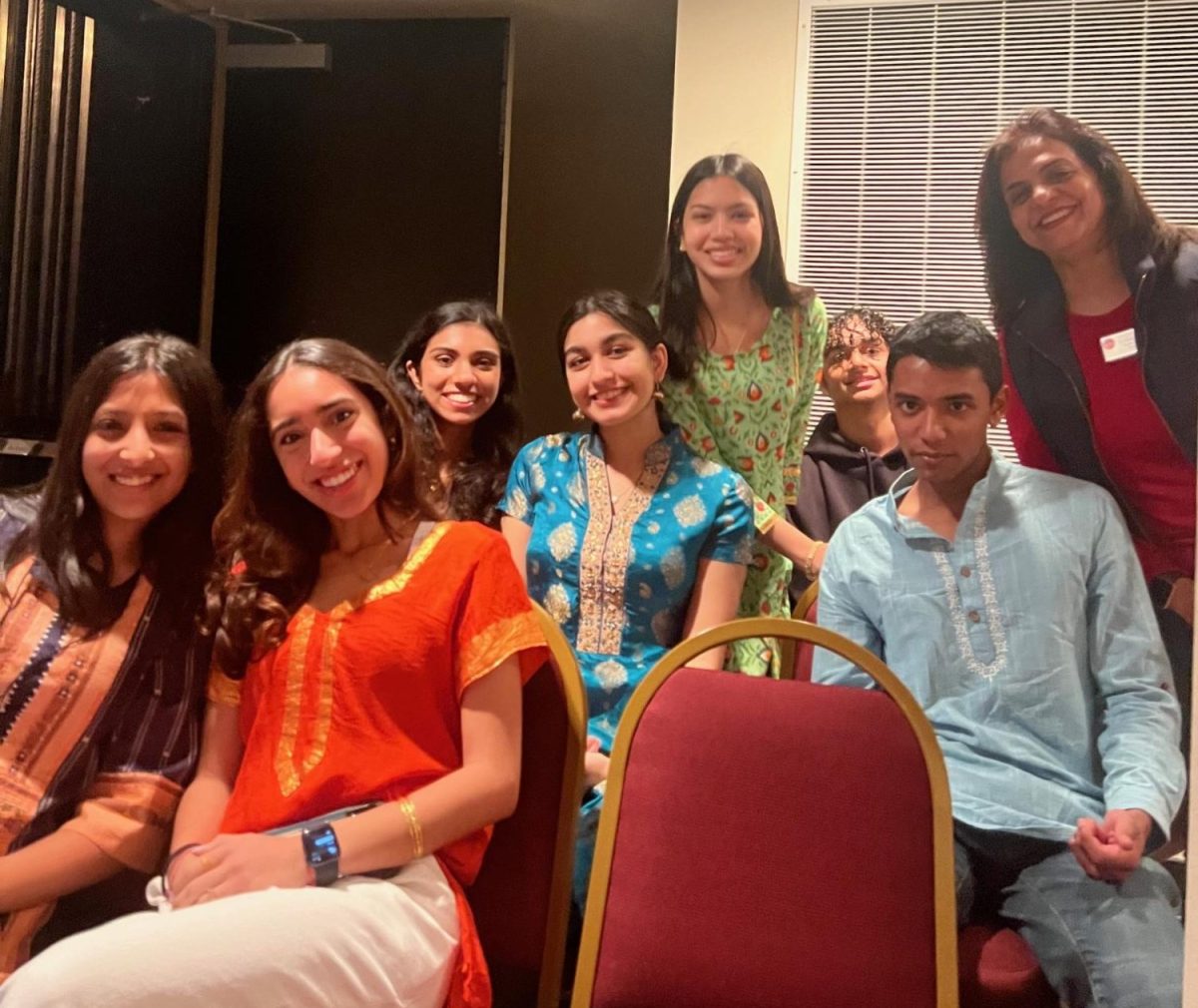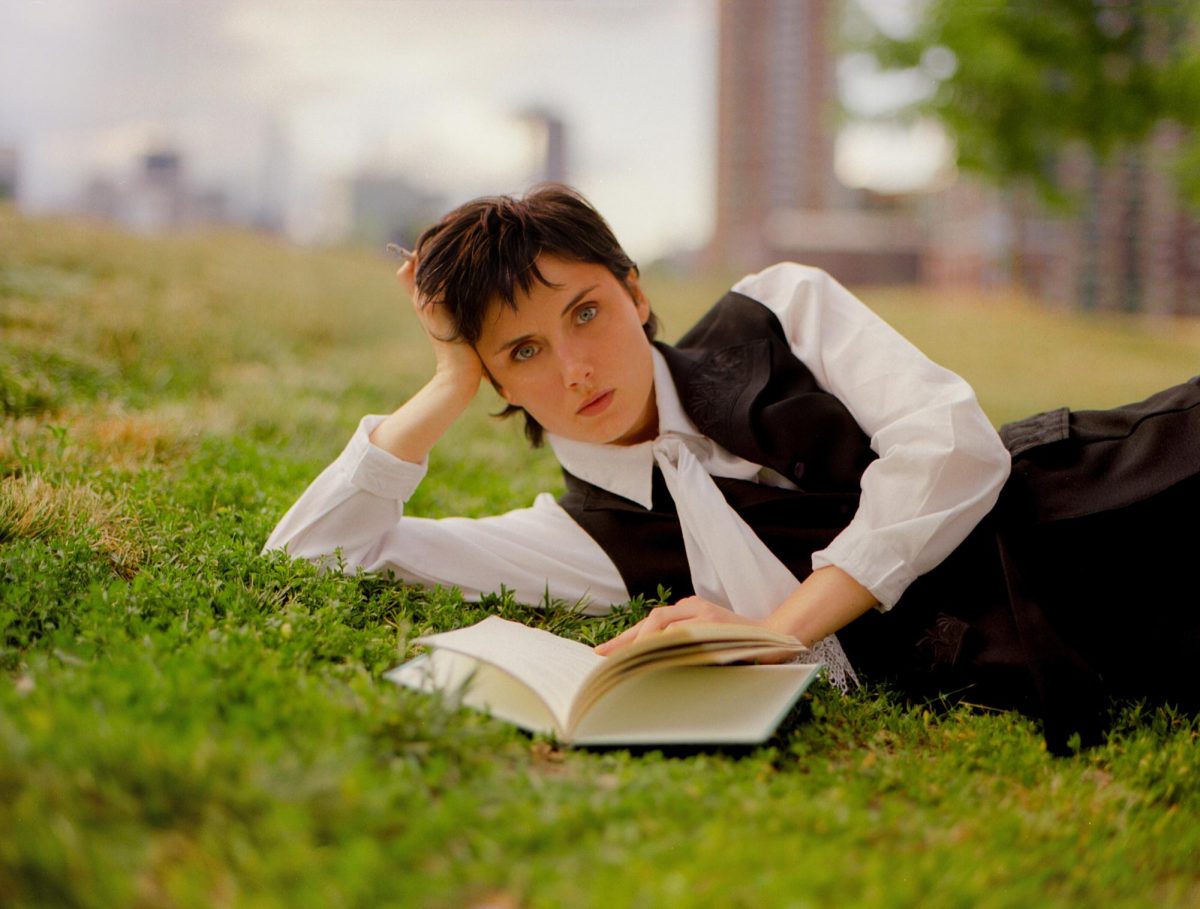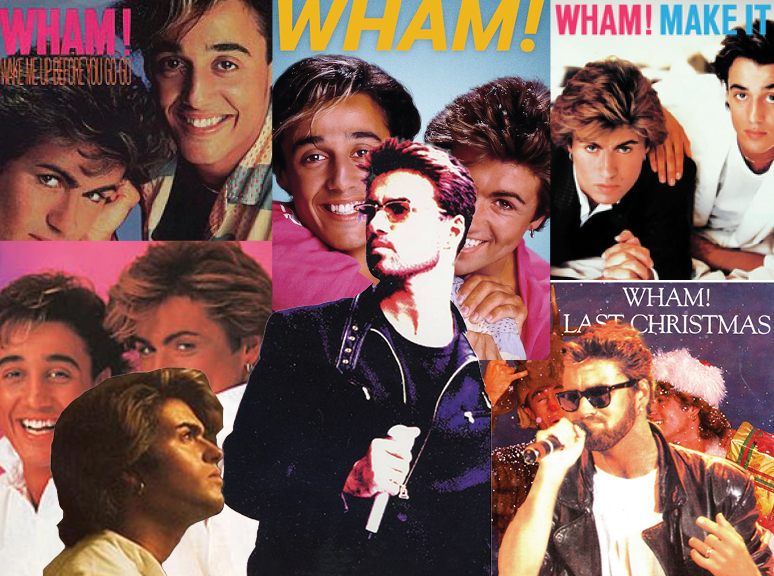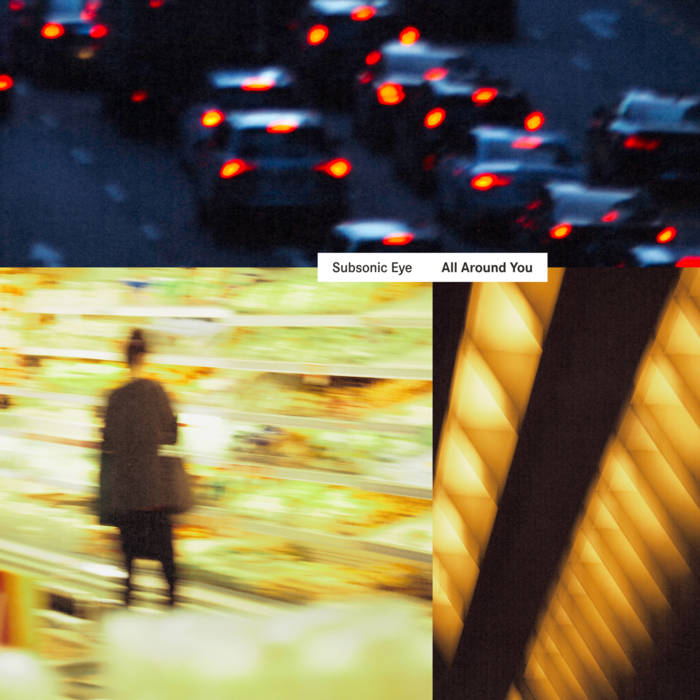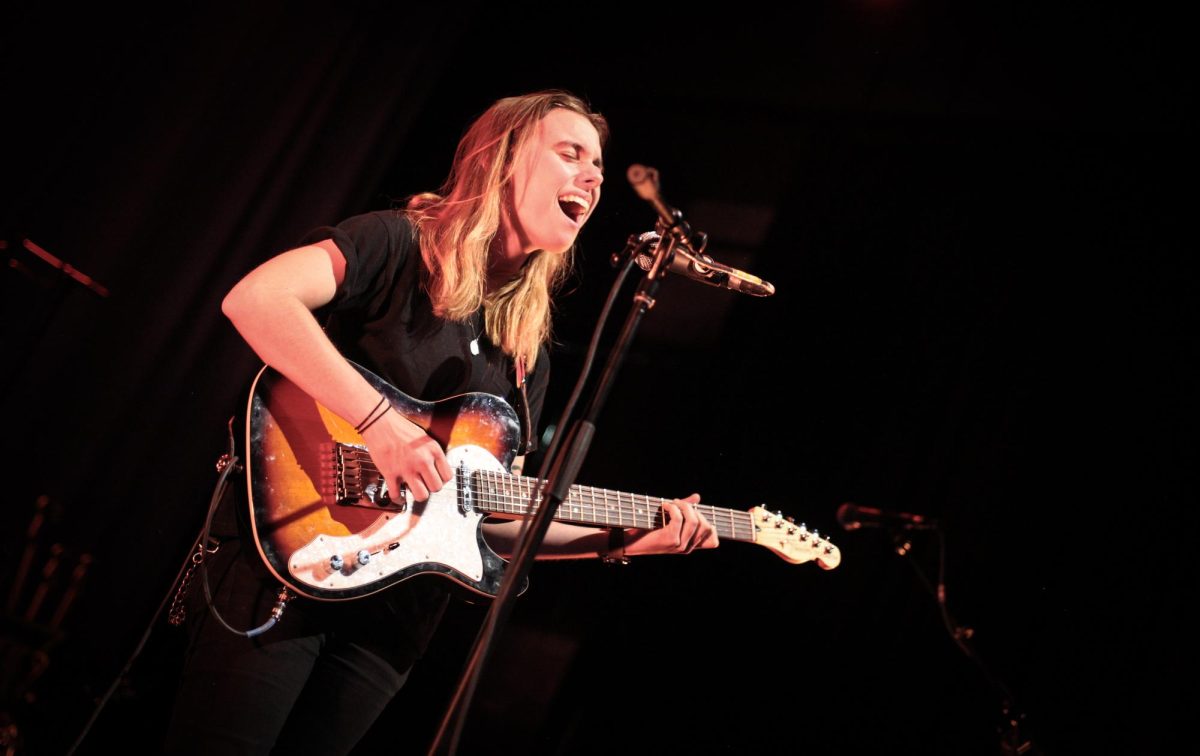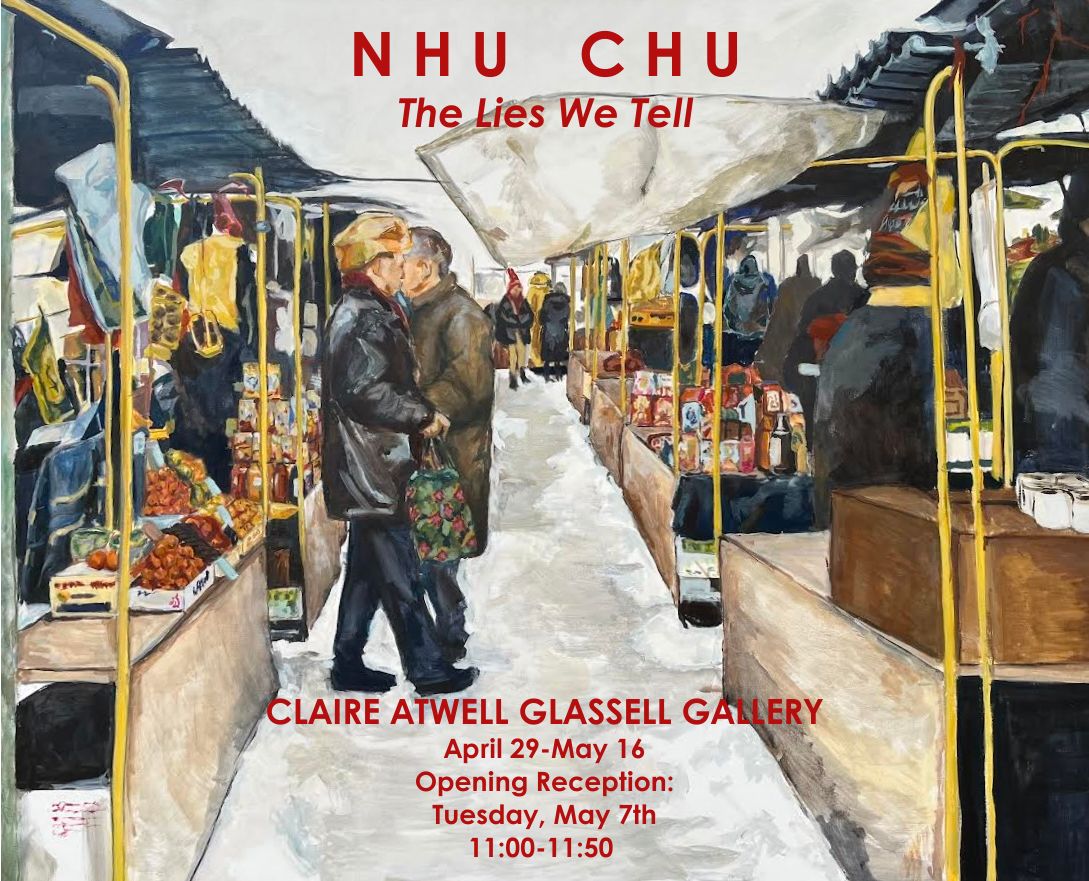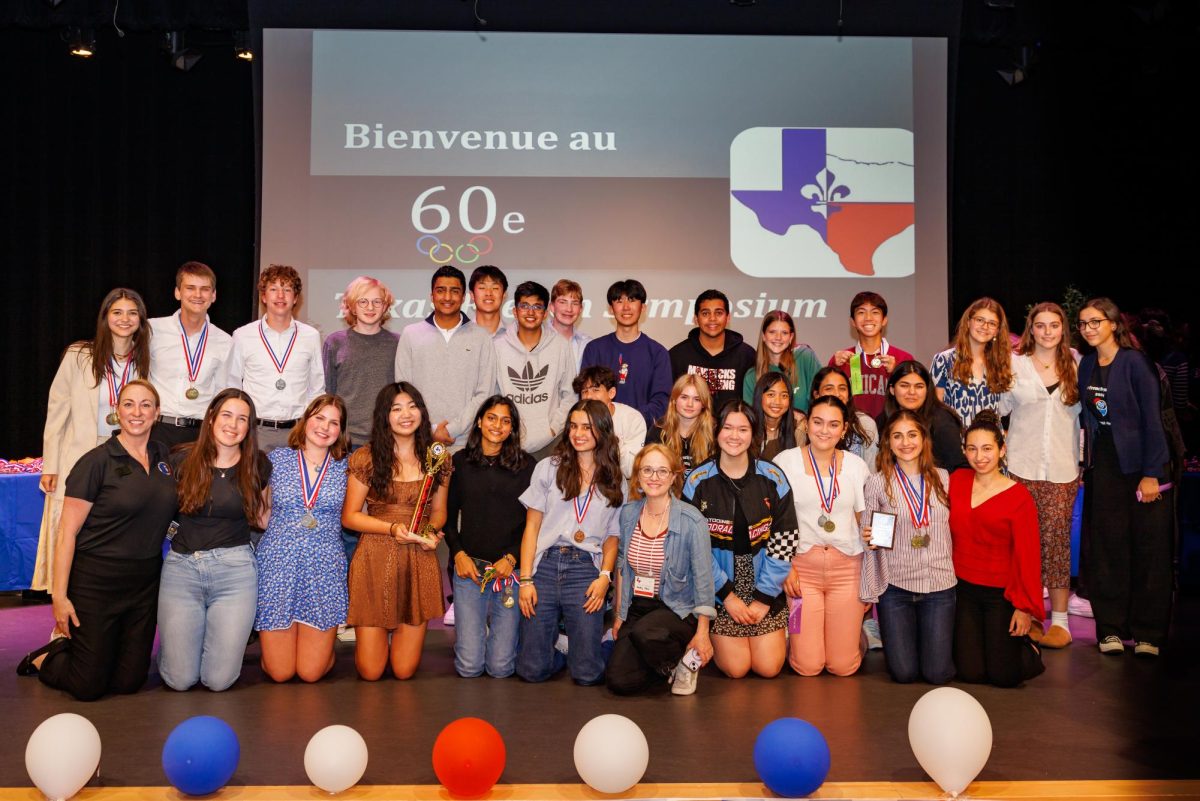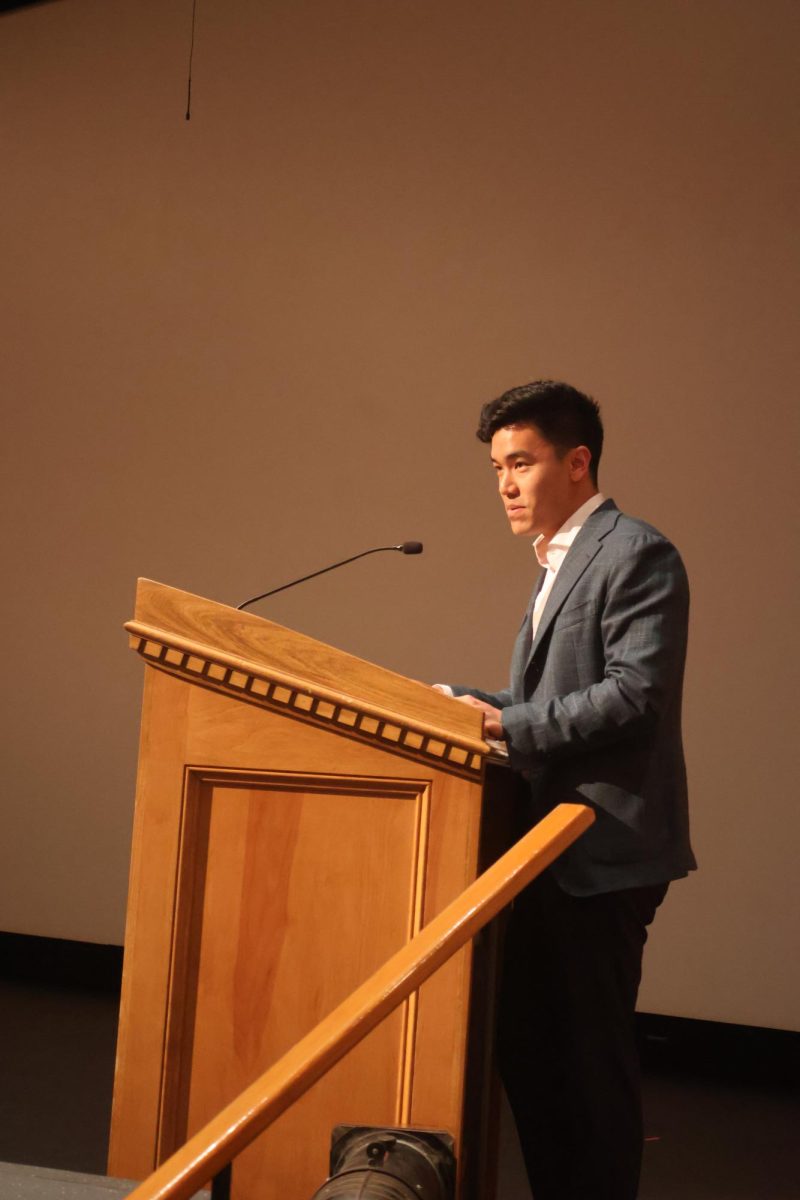
Ursula K. Leguin is blocking Katie von Schleicher’s camera as we speak on a Tuesday Zoom call. The white parakeet, named after the late Earthsea author, was jockeying for press time of her own. But I wasn’t there to talk to the bird. I chatted with von Schleicher about her influences, found music, and her new release.
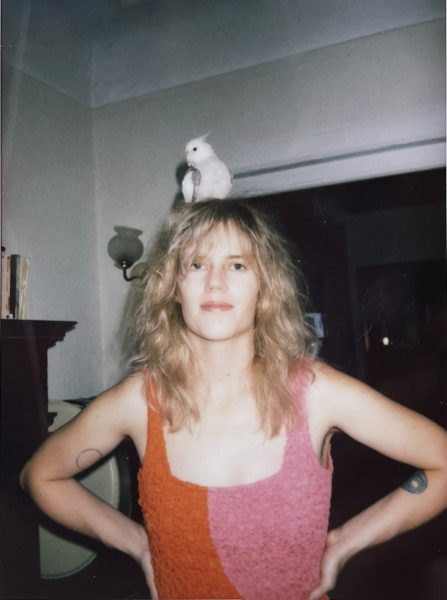
The best time to listen to A Little Touch of Schleicher in the Night is in the afternoon. The ambling opening track, “Montagnard People,” is an invitation to think, maybe while lying in the sun and splashed out on some lemonade. Von Schleicher’s musings on getting old and the health benefits of Dwayne Johnson movie marathons certainly invite some reevaluation of self-worth, but the song reminds you to stop and remember you are all that — “you’re a blast, now believe it.”
Inspired by Arthur Russell’s “That’s Us/Wild Combination,” one of von Schleicher’s favorite songs, “Every Step is an Ocean” is meant to feel like a moment frozen in time. Her descriptions of her childhood in Pasadena, Maryland, crafted a narrative of adorably grandiose delusions of young stardom, recording songs on her Dell pencil microphone and home movies on PowerPoint.

But von Schleicher revels in this simplicity. She recorded A Little Touch during the pandemic in a home studio with Wurlitzer 200s and Roland synths to give the album’s rock organ percussion a snap-and-crackle feel—like well-loved vinyl. When using pedals on a keyboard, von Schleicher says “there are no rules.” The record is warm and atmospheric and whimsical—listening feels like being a kid again, but with the perspective to appreciate how good you had it.
Driving the album’s spunk are bouncy nihilistic tunes (“Cranked” and “Texas”) and jilting philosophical folk (“Elixir”). Odes like “Jeanine” and “Ruby” put the rearview in a rose-colored haze. Von Schleicher is such a fun conversationalist that any attempt on my part to paraphrase would muddy her voice, so, with light editing for conciseness and clarity, here’s some of our talk.
A Little Touch of Schleicher in the Night is available from Sipsman Records wherever you listen to music on Oct. 20.
When the album was announced, I saw the title and I just wanted to ask—I’ve listened to The Point! since I was like eight, and I noticed this is a Harry Nilsson reference. What draws you to that kind of stuff?
I grew up listening to a lot of American popular songs, and then when I found Harry Nilsson, he was one of the first people I listened to who did it in his own inventive terms that fit with like, the late sixties and seventies. And he’s funny. It’s this fascinating thing where he’s both funny and then he has this voice of gold. It’s a fun combination.
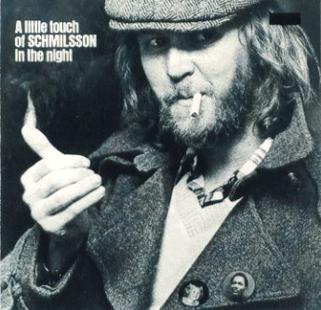
What were you like as a kid?
I was pretty introverted and I had some friends on my street. I grew up in a suburb and so we spent most of our time outside and everybody had go-karts and they were driving their go-karts around a lot. My friend and I used to just drag each other around in our wagon. I don’t know, we just did kid stuff. So, creative and silly. It was nice, you know, we had a mile of woods to run.
When did you make that jump between, “I really like music” and “I want to pursue music as a career and go to Berklee”?
It’s funny. When I think about it, I have no idea how it happened, really. When I was in high school, I was mostly focused on English and history and I was completely all about reading. I thought I would apply to Berkeley and you can try out for a scholarship, you know, and I got it in the first semester of my senior year and then I just didn’t apply anywhere else. It just kind of happened. And then as time has gone on, I’ve checked in to be like, how is this my life? How is this my job?
How did you start making A Little Touch?
I was making it during lockdown, which was kind of not the best, I guess, but we made it together in a room, which itself felt like kind of a marvel because I hadn’t been making music with people in rooms. So it was refreshing, I think. We worked really short days, probably five hours a day for five days, and we would just sit in the room, listen to my demo, and then we would sit near each other and play the song two or three times. Sam [Griffin Owens], who recorded it, is a good friend, and we were all good friends, so we would just stop, we would make dinner. Sam would like, make fresh pasta or we would take a walk in the woods because he lives upstate [New York]. Then we would play lots of cards until late at night. There were some kind of embarrassing things. Like, one night here was a jazz jam that I wasn’t a part of, but I just layed on the floor and was listening to people play music together. And, you know, I’ve done this for so long, it had been easy to forget how special that can be.
What are you listening to right now? If you were to put in your earbuds, what would come on?
I’ve been listening to this album, Segundo by Juana Molina. She made this record maybe in the late, late nineties, early two thousands, and it’s just so beautiful. It’s really intimate and she’s just got this completely unique way of making music. I can’t find the record, but it’s kind of yellow. It even inspired my album cover as I was doing that while I was listening to her music a lot. I’ll get into phases where I just fall in love with one record and then I listen to it over and over rather than being someone who’s listening to tons of different things all the time.

I also really got into this record, Orchestral Maneuvers. Their record Dazzle Ships. That’s one of their weirder ones. After they had the hit, they got to make this weirder one. It feels like it has lots of tape loops. And I’ve been getting into, like, kind of seventies and eighties string synths and collecting those a little bit. And that coincided with listening to that record where they use the Selena, this classic late-seventies, I believe, string synthesizer. And they don’t really sound like an orchestra, but they do sound like something.
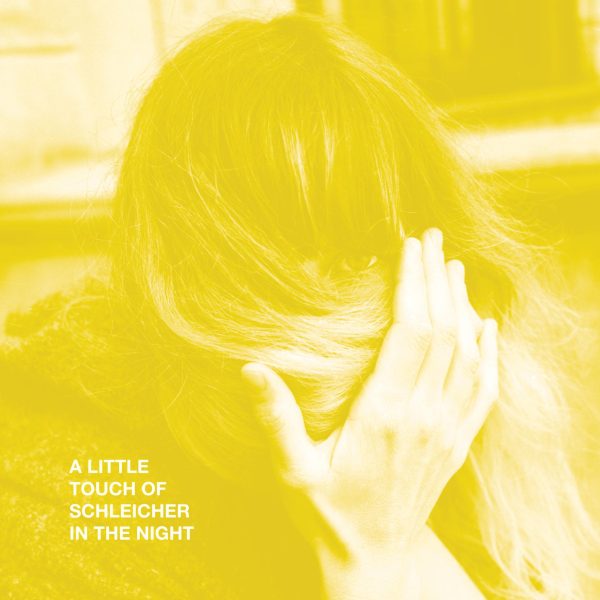
I got really into this artist, this Japanese songwriter, Ichiko Aoba. One of the last things I did at the label I worked at was we were able to issue her vinyl for the first time in the United States, which was really exciting. She tours here now, and if you have an opportunity, you should see her, because she’s incredible. And then other than that, I’ve been listening to just like, honestly a lot of jazz. Lots of Bill Evans and Duke Ellington. I’m favoring things that leave a lot of space in my mind.
What are your opinions on that metric of measuring music’s worth on it being unknown or “indie”?
Right. Well, I take solace sometimes in knowing that a lot of people whose music has really inspired me are not gigantic. That’s not to say that I’m special for knowing about them, but it’s just that, if you don’t come from a super musical family, the metrics by which you are successful are often mainstream metrics. I’m also really pleased to say that we have much less of a culture than when I was growing up, there was more of a culture of “gotcha!” Hipsterism, I guess. And now that’s—well, I guess I can’t say much. You are a genuine young person, you can tell. That ages me. When I was in school, there was this server in our dormitory where you could download the music of the people, what they had on their hard drives.
Kind of like Napster?
Yeah, but it was a closed system where it was just the people in this dorm or whatever near you. I don’t remember how it worked, but there used to be more of like, “I’ve built my identity by the music that I’ve found.” Because you had to scrounge it up a little bit. And now, Spotify knows that I like ambient, experimental music and they just make me a perfect playlist of weirdos. Or Japanese City pop or something. It’s just the algorithm.
What advice would you give to people my age who would like to become musicians or pursue a career in music?
Well, first off, I think people your age probably have a better idea than anyone older can tell them because I have a lot more faith in your generation. There’s a lot of smart young people, I think, who aren’t afraid to be themselves, which is beautiful. I do think “No Rules” is a big one because it took me so long to realize, to be a lady who works as an engineer or whatever, there’s just fear. Less representation in certain tiers. So I feel like, obviously, don’t give up. Don’t expect monetary success, but never lose sight of the beginner’s mindset. Anytime you write something, anytime you play something, the more I think you can hold on to the mindset that this is like, the first thing you’ll ever do, the more fresh it’ll be. Because it’s your whole life, and life is kind of long. It goes on for a while, we hope.




